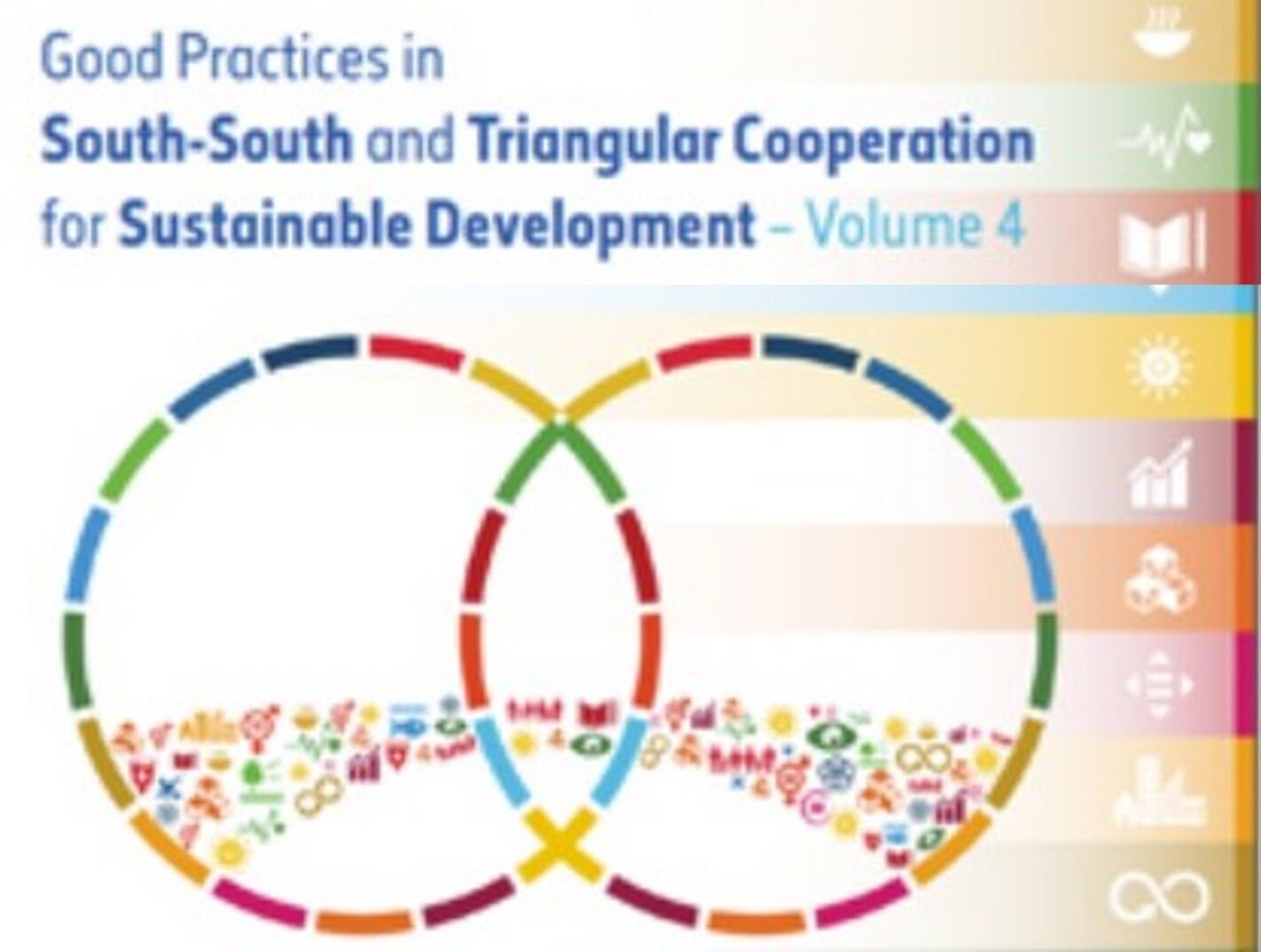
The Virtual Health Library (VHL), a model for information management developed and coordinated regionally by the Latin American and Caribbean Health Sciences Information Center of the Pan American Health Organization/World Health Organization (BIREME/PAHO/WHO) with the support of Latin American and Caribbean countries is recognized as a good practice in the 4th volume of the Publication “Good Practices in South-South and Triangular Cooperation for Sustainable Development” of the United Nations Office for South-South and Triangular Cooperation (UNOSSC).
The publication was launched on September 12 in Bangkok, Thailand, during the high-level commemoration of the United Nations Day for South-South Cooperation, within the framework of the “Global South-South Development Expo 2022” and was attended by the PAHO/WHO Country and Sub-Region Coordination team led by Godfrey Xuereb.
In addition to the VHL model, five other good practices also supported by PAHO/WHO were recognized in this edition of UNOSSC, which we highlight below.
(1) Strengthening National and Regional Antimicrobial Resistance Detection and Surveillance in CARICOM Member States;
(2) Bringing additional technology to healthcare in Trinidad and Tobago: Health Service Robots;
(3) Vaccination in Border Territories in Andean Countries with an Intercultural Approach;
(4) Empowered Communities in Latin America and the Caribbean Against Antimicrobial Resistance; and
(5) Cooperation Strategy for Chronic Kidney Disease of Non-Traditional Origin in Central America and the Dominican Republic.
A few months before the VHL celebrates its 25th anniversary, it is recognized as a good practice available for countries in the Region and outside the Americas, and therefore, it serves to highlight and reference the program of technical cooperation and the performance of BIREME and its network of institutions and supporting professionals, in the benefit of access to health information and scientific evidence in Latin America and the Caribbean and in Portuguese-speaking countries.
In the words of Antonio Guterres, Secretary General of the United Nations, “South-South and Triangular cooperation are essential for developing countries to mitigate the effects of and adapt to climate disruption, address the global health crisis, including the recovery from COVID-19, and achieve all 17 Sustainable Development Goals. It must play an increasingly bigger role in solving our common challenges”.
Sebastián Garcia Saiso, Director of the Department of Evidence and Intelligence for Action in Health (EIH) and interim Director of BIREME/PAHO/WHO, emphasized that this publication highlights the VHL and, consequently, the great work that BIREME does to facilitate access to scientific health information in the countries of this Region. In addition, he thanked Silvia Almeida de Valentin (GA), Lilian Calò (COM and CCS), Márcia Barretto (ITI/GA), and Verônica Abdala (SCI/PFI) for their contribution in the preparation of the texts and to all those who contribute to strengthen the Center and, because of their contribution, PAHO/WHO sees the publication as a fair recognition of this daily work.
About South-South Cooperation
The United Nations Conference on Technical Cooperation between Developing Countries, which took place in 1978 in Buenos Aires, Argentina, adopted the Action Plan for the Promotion and Implementation of Technical Cooperation between Developing Countries that was named after the city that hosted the Conference. At the time, the General Assembly proclaimed September 12 as the United Nations Day for South-South Cooperation.
The United Nations Day for South-South Cooperation took place during the Global South-South Development Expo (GSSD). The event was co-organized by the United Nations Office for South-South Cooperation (UNOSSC), the Government of Thailand, and the United Nations Economic and Social Commission for Asia and the Pacific (UNESCAP). During the event, stakeholders had the opportunity to reflect on the vital role of South-South and triangular cooperation in supporting Member States to achieve the 2030 Agenda and fulfill expectations of the Decade of Action, while effectively recovering from the global crisis of COVID-19 and striving to build resilient, sustainable, smart, and inclusive societies. It was in this atmosphere that the initiatives recognized as Good Practices in South-South and Triangular Cooperation for Sustainable Development were announced through the publication.
The publication “Good Practices in South-South and Triangular Cooperation for Sustainable Development” Vol. 4 del United Nations Office for South-South Cooperation is available at: https://unsouthsouth.org/2022/08/31/good-practices-in-south-south-and-triangular-cooperation-for-sustainable-development-vol-4-2022/



